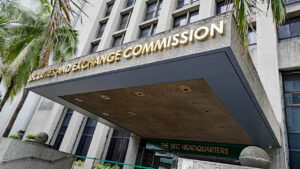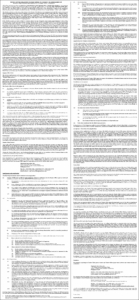By Revin Mikhael D. Ochave, Reporter
THE Securities and Exchange Commission (SEC) is proposing to declassify the Class A and B common shares of all listed companies to improve trading efficiency.
“To ensure efficiency in executing and settling equity trades, the classification of common shares into Class A and Class B of all the listed companies shall be discontinued,” it said in an April 25 draft memorandum circular posted on its website.
The SEC issued the circular to revise the rules allowing the trading of B shares on the regular board and requiring buyers to accept either A or B certificates.
“The classification of the A and B shares has been a source of administrative inefficiencies for the trading participants and the Securities Clearing Corp. of the Philippines, as well as unwarranted arbitrage for holders of Class B shares,” the corporate regulator said.
Class A shares are stocks issued to Filipino citizens, while Class B shares may be issued to both Filipinos and foreign investors.
Some listed companies that have Class A and B shares include holding company ATN Holdings, Inc., miner Benguet Corp. and construction material supplier Concrete Aggregates Corp.
The SEC said there are still several listed companies with Class A and B common shares “for the sole purpose of monitoring equity ownership of local and foreign investors, as these shares bear the same rights, privileges and entitlement to dividends.”
In September 1973, the SEC released guidelines to monitor foreign ownership through the classification of common shares of publicly listed companies into Class A and B shares, ensuring that the 60% local and 40% foreign stock ownership requirement is met.
In May 1997, it ordered the Philippine Stock Exchange (PSE) to declassify shares of companies going public to eliminate the “unfair price disparity” between Class A and B shares. However, the declassification was applied prospectively.
“The phase-out is warranted because that share classification structure hasn’t served any practical purpose ever since the PSE introduced an effective system for monitoring foreign ownership limits,” China Bank Capital Corp. Managing Director Juan Paolo E. Colet said in a Viber message.
“It becomes simpler for investors as there’s just a single class of common shares to trade. Furthermore, it removes unnecessary arbitrage because the market is pricing only one kind of common stock,” he added.
Jarrod Leighton M. Tin, an equity research analyst at DragonFi Securities, Inc., said the proposal would improve liquidity.
“It’s good for companies with A and B shares as it will increase stock liquidity as both foreign and local investors can now trade the company under a single ticker symbol,” he said in a Viber message.” “B shares are generally more illiquid and often have tracking error relative to the A shares.”
“It also helps a bit in overall market liquidity because if there are too many ticker symbols but few market players, it can actually worsen market illiquidity since there are too many stocks to choose from,” he added.
The SEC proposed that listed companies amend their articles of incorporation to reflect the declassification within a year from the draft circular’s effectivity.
“During the period to amend the articles of incorporation, buyers on the regular board shall accept the delivery of the specific class of shares that they have purchased and paid for, and shall not be compelled to receive an alternative class of shares,” it said.
Comments on the draft circular will be accepted until May 24.






